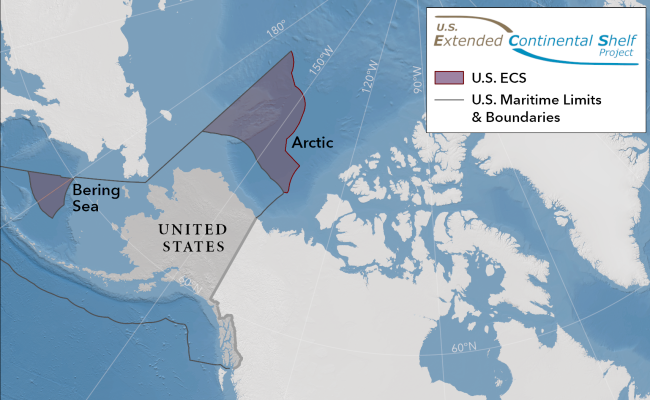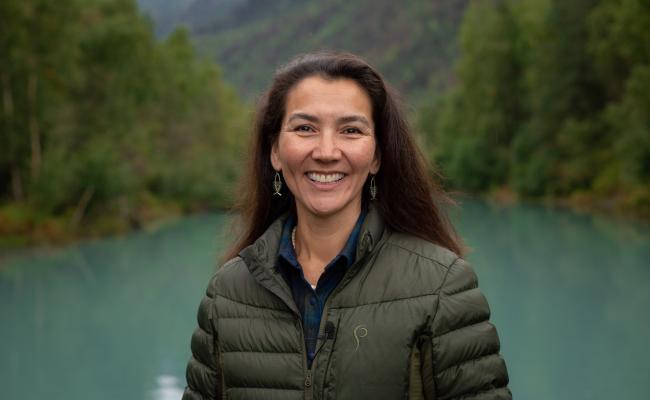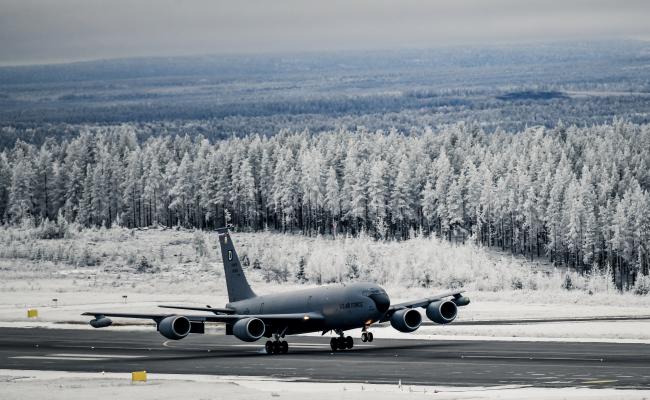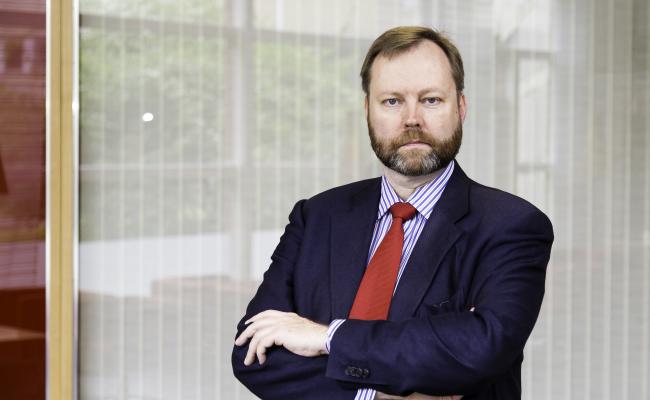Arctic Frontiers 2024: Bidens Arctic Advisor: "Our Postures in The Arctic Have Changed"
David Balton, Executive Director at the Arctic Executive Steering Committee for the White House Office of Science and Technology Policy, met the international press at Arctic Frontiers 2024, in Tromsø. (Foto: Trine Jonassen)
Tromsø (High North News): Despite increased tension, the Arctic remains a stable region. But Joe Biden's Arctic adviser, David Balton, is concerned about the long-term effects of the lack of cooperation with half of the Arctic region.
“With Finland and soon Sweden in NATO, it will increase security of the Arctic and keep it stable and secure”.
The quote belongs to David Balton, Executive Director of the Arctic Executive Steering Committee at The White House, as he meets the international press at the Arctic Frontiers conference in Tromsø Tuesday.
He will admit that tension in the High Nort has increased, and the term High North – Low Tension has lost its validation.
All eyes are on the Arctic. Russia’s including. The outside attention is increasing.
More attention
And as some of the Russian land forces stationed in the Russian Arctic has been transferred to the war in Ukraine, Russia’s Arctic air and naval forces has not been affected by the situation, states Balton.
The Arctic Council is struggling now
"In some ways, Russia has been paying more attention to the Arctic in the last few years. But the situation remains relatively stable," Balton repeats.
While the war pushed Western countries closer together, cooperation with Russia on any level is difficult. Yet Russia makes up over 50 percent of the Arctic, and the rest of the world has little to no idea what is really going on behind the iron curtain that fell two years ago.
David Balton does not think that will change any time soon.
"But perhaps there are some things we can still do, with some exceptions, like cooperating on the international space station and some emergency matters, as well as the border area."
Arctic Council is struggling
There is also some low-level cooperation with Russia under Norway's chairship of the Arctic Council.
David Balton is US President Joe Bidens adviser on Arctic issues. A relaxed Balton willingly anwered questions from the press at Arctic Frontiers 2024, in Tromsø. (Photo: Trine Jonassen)
"The Arctic Council is still the premier institution for circumpolar diplomacy even if it is difficult to work with Russia now," Balton says, adding that the Council is struggling now.
The fact is that the absence of Russian officials and scientists is beginning to be a problem for science.
"I hear from US scientists who have colleagues from Russia with whom they can no longer work. This is a problem, including for climate science. For example, the permafrost across the Arctic region is thawing. A lot of that permafrost is in Russia," says Balton.
Without any climate data from Russia, it is hard to know how to handle climate change and how to adapt.
"Getting that data from Russia was never easy. Now, it is particularly hard due to the circumstances, " Balton explains.
Also read (The Article Continues)
Stepped up
It is not only Russia that has stepped up its game in the Arctic post-war. The USA has sharpened its own focus in the US Arctic.
“We have invested in more recourses in the North. We are looking to work with like-minded Arctic states more now that we cannot work with Russia on most things. In any number of ways, our postures have, in fact, changed in the Arctic,” admits Balton.
He says the US is working in a way that they have not worked before because cooperation with Russia is so limited.
No signal to Russia
"In December last year, the USA claimed an extended continental shelf in the Bering Sea bordering Russia. Was it a signal to Russia of any kind?"
“No. No, it was not a signal to Russia,” Balton dismisses with a laugh.
It was not a signal to any one nation
"We were finally ready to announce our continental shelf's outer limits. It took us 20 to 25 years to do all the research, gather the data, analyze it, and compare it against the criteria found in the Law of the Sea Convention (UNCLOS)," Balton explained.
The claimed area is twice the size of California, securing rights to potentially resource-rich seabeds at a crucial time when the USA is working to safeguard supplies of minerals key to future technologies.
Not a member
This is an area of increasing strategic importance where Canada and Russia also have claims.
"Only now do we know for sure where those outer limits are, and that is why we made the announcement," Balton assures, pointing out that the Bering Sea is not the only place where the US has announced its outer limits.
"We have continental shelves in the Atlantic Ocean, the Pacific Ocean, the Gulf of Mexico, the Bering Sea, and the Arctic. But it was not a signal to any one nation," Balton assures.

The U.S. Department of released the geographic coordinates defining the outer limits of the U.S. (Map: US Department of State)
No reaction
“How did Russia react to the claim?”
“I have not heard any specific reaction from the Russian government to the claim,” Balton says.
“Prior to the invasion of Ukraine two years ago, we had been in touch, not only with Russia but with the other countries that rim the central Arctic Ocean. We were regularly exchanging data about our findings on the sea floor, and we knew about each other’s potential claims.”
“So, this did not come as a surprise to anyone.”
Overlapping
“Is the USA going to search for minerals on the seabed, like Norway is looking into?”
“We have no plans to do that currently.”
Also read (article continues)
“Is it ok to overlap Canada's continental shelf?”
“These overlaps are occurring in many places in the world. Good neighborhoods find ways to negotiate boundary lines. We even have a boundary agreement with Russia, back from 1990 when they were the Soviet Union,” says Balton.
“So, it is possible to establish boundaries to separate overlapping claims.”
Spillover effect
The USA has not yet ratified UNCLOS, which governs maritime zones around countries. Under the law, countries have the right to any resources in the sea or seabed floor within their so-called exclusive economic zones, which can stretch up to 200 nautical miles off the coast.
UNCLOS has been ratified by 168 states and the European Union. This includes Russia.
As to any possible spillover effect in a security sense, David Balton does not wish to speculate.
“I do not know”.





